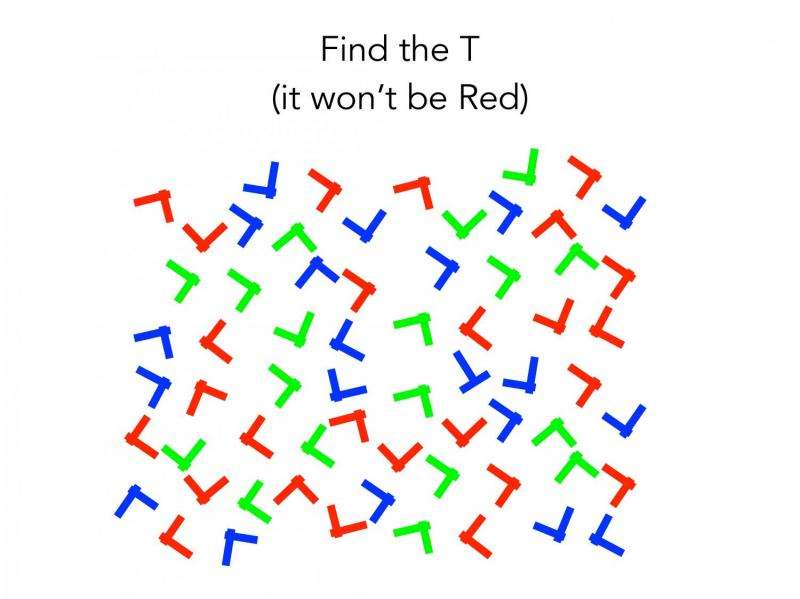Mastering the art of ignoring makes people more efficient

People searching for something can find it faster if they know what to look for. But new research suggests knowing what not to look for can be just as helpful.
Although previous studies concluded that attempting to ignore irrelevant information slows people down, Johns Hopkins University researchers found that when people are given time to learn what's possible to ignore, they're able to search faster and more efficiently.
The results, which offer new insight into how the mind processes difficult information, are forthcoming in the journal Psychological Science and now available online.
"Individuals who explicitly ignore distracting information improve their visual search performance, a critical skill for professional searchers, like radiologists and airport baggage screeners," said lead author Corbin A. Cunningham, a graduate student in the Krieger School of Arts and Sciences' Attention and Perception Lab. "This work has the potential to help occupations that rely on visual search by informing future training programs."
In two experiments, researchers asked participants to search for certain letters on a computer screen. They had to find either a capital "B" or an "F," among other letters of assorted colors. Sometimes, the participants were told the "B" or "F" would not be a certain color, like red. Other times they were given no color hints.
When participants were given one color to consistently ignore throughout the experiment, their reaction time slowed at first, but after extended practice, about a hundred trials, they were finding the target letters significantly faster than participants who weren't given a color to eliminate.
In fact, the more information participants were able to ignore, the faster they found the target.
Although trying to disregard distractions might initially slow people down, the researchers concluded that over time, people are more efficient when they know what's not worth paying attention to.
The ability to ignore is a key part of the ability to pay attention, the researchers said.
"Attention is usually thought of as something that enhances the processing of important objects in the world," said co-author Howard Egeth, a professor of psychological and brain sciences at Johns Hopkins. "This study, along with some recent work in which we measured brain activity while subjects responded selectively to stimuli presented in the midst of competing stimuli, highlights the importance of active suppression of those competing stimuli. It's what I think of as the dark side of attention."
More information: C. A. Cunningham et al. Taming the White Bear: Initial Costs and Eventual Benefits of Distractor Inhibition, Psychological Science (2016). DOI: 10.1177/0956797615626564


















